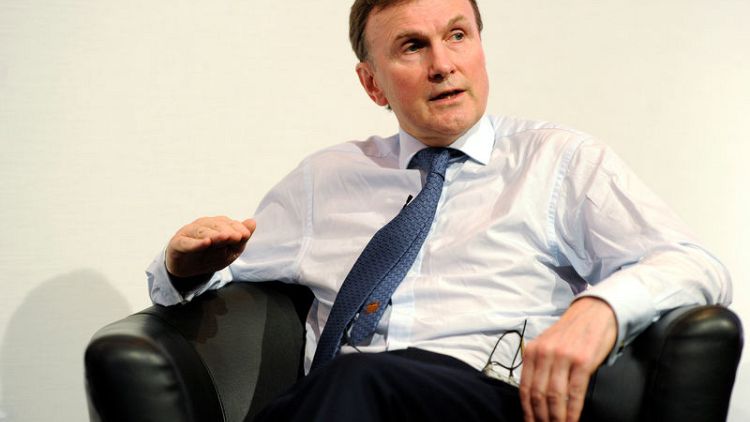By James Davey
LONDON (Reuters) - The idea of splitting British retailer Marks & Spencer <MKS.L> into two companies - one for clothing and the home, and one for food - is "completely impractical" and not in the board's current thinking, Chairman Archie Norman said on Wednesday.
The 135-year-old M&S set out on its latest transformation plan, after over a decade of false dawns, shortly after retail veteran Norman became chairman in 2017 to work alongside Chief Executive Steve Rowe, who has been with the company for 30 years and became its boss in 2016.
In May last year, Norman targeted sustainable, profitable growth in three to five years and has been instrumental in speeding up the pace of change, separating the internal reporting of the clothing and home division and food business.
M&S has been closing weaker stores, revamping ranges, investing in technology, and struck a £1.5 billion joint venture with online grocer Ocado <OCDO.L> to give M&S a home delivery service for food from September 2020.
That, and the contrasting fortunes of the two businesses - with clothing continuing to struggle while food has returned to growth - has prompted media speculation Norman could split them into two companies. The spun-off part could be listed separately or could be attractive to a buyer.
"That's not our plan," said Norman, who made his name turning round supermarket group Asda in the 1990s before selling it to Walmart <WMT.N>.
"We should just remember that there are very strong sinews that join the businesses together, that make the idea of taking the division too far today completely impractical," he told reporters after M&S reported a 17% fall in first half profit, hurt by falling clothing sales.
Norman explained that most of the profit in both businesses was made in combined stores. Both businesses share a store's back entrance, its stock room and store manager, while shop floor staff move between the two and share the same culture.
M&S's core systems architecture is also shared between the two operations, as is data and marketing.
"These are completely congruent businesses," he said.
Norman has high hopes for the venture with Ocado. He reckons it could help double the size of M&S's food business and also help grow deliveries of general merchandise.
But for those who think a split is still the answer to M&S's woes, Norman did add: "Nothing is forever."
(Reporting by James Davey; Editing by Mark Potter)



